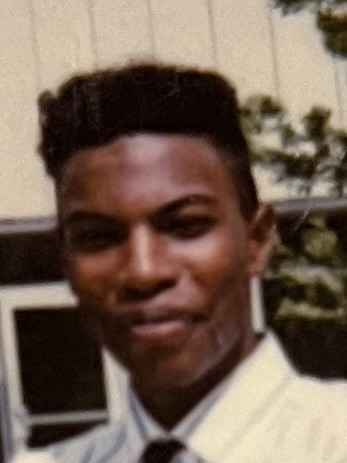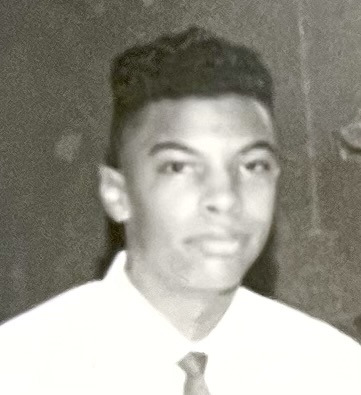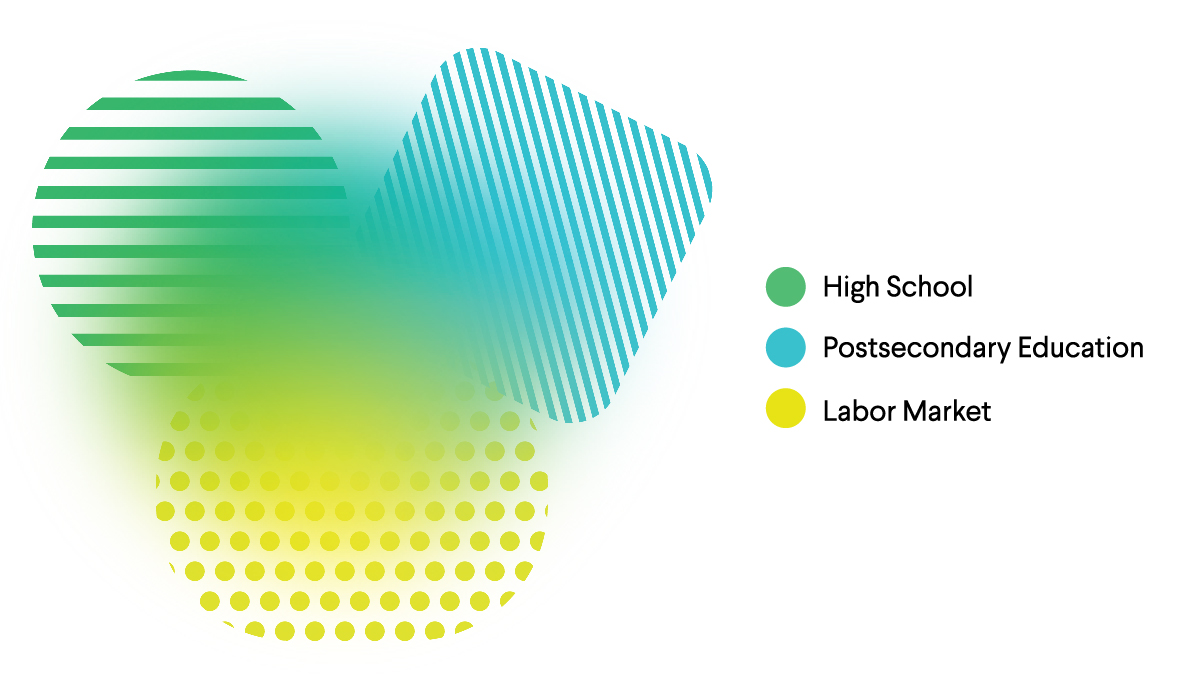

What My First Job Taught Me About ‘Learning-Based Work’
At A Glance
JFF’s Tony Landis reflects on his first job, the Big Blur, and how learning-based work could help students with after-school and part-time jobs gain the same benefits as those in work-based learning programs.
My recent work with several states on work-based learning strategies has led me to reflect on my own first real work experience. I was 15 years old. The local Urban League was partnering with businesses to arrange summer jobs for high school- and college-aged students from underserved communities. With my father’s encouragement and a work permit in hand, I went down to the Urban League’s offices and filled out an application. Soon, I was contacted by the state library for the deaf and blind. I went to the job interview wearing a shirt and tie, as instructed by my father, and hoped they would hire me. My soon-to-be supervisor commented on my professional appearance, adding that I wasn’t required to wear a tie for this job.
 My job would be to operate a thermoforming machine, which made braille copies of books. Based on the orders we received, we would pull the needed books from the shelves and use the machines to melt plastic sheets into braille copies of each page. We would then bind the book, box it, and ship it to the requested location. Shelving returned books was also part of the duties, as was sending books and videos on sign language to libraries and schools.
My job would be to operate a thermoforming machine, which made braille copies of books. Based on the orders we received, we would pull the needed books from the shelves and use the machines to melt plastic sheets into braille copies of each page. We would then bind the book, box it, and ship it to the requested location. Shelving returned books was also part of the duties, as was sending books and videos on sign language to libraries and schools.
It was a great experience. Although I did not realize it at the time, I was learning more than the technical and soft skills I needed to operate the thermoforming machine. I was also learning key lessons about working, such as the importance of having a professional appearance and how to appropriately interact with staff and effectively communicate with team members.
Much of what I learned then has helped me to understand workplace processes and responsibilities, a lesson that has carried over to today. For example, I gained insight into how tasks are organized and managed professionally. But as a 15-year-old, I did not know how to translate these skills into resume language or how to articulate in a job interview how these skills were transferable to performing the tasks required for the position I was applying for. In fact, it wasn’t until I was in my 30s, when I was participating in a leadership academy for young professionals about building social and political capital in a workplace, that I came to realize that these were concepts that I had been introduced to when I was 15.
Now that I am involved in education-to-career pathways work, I can see how helpful it would have been for my career maturation if I had been taught how to recognize and articulate these acquired skills earlier in my professional life. And I have to ask: What if we didn’t leave these workplace lessons to chance?
 What if we were able to turn ordinary jobs—jobs that are like the one I worked at when I was 15—into experiences that enable young people to consciously develop the type of workplace knowledge and skills that we associate with formal work-based learning experiences?
What if we were able to turn ordinary jobs—jobs that are like the one I worked at when I was 15—into experiences that enable young people to consciously develop the type of workplace knowledge and skills that we associate with formal work-based learning experiences?
Like me in my first job, young people are gaining skills and knowledge through their jobs, but if we take a more intentional approach to helping them to identify and reflect on what they are learning, we could bolster their preparation for careers.
High schools and colleges that have struggled to scale work-based learning could dramatically expand opportunities for their students to learn in workplaces if they build the capacity to facilitate “learning-based work.”
The co-leads of Jobs for the Future’s Pathways to Prosperity Coalition, Charlotte Cahill and Kyle Hartung, use this play on words to bring attention to the learning that happens in the jobs that many students already have. It’s an approach that also recognizes that students who need to earn wages to support themselves or their families or to pay for school are often unable to participate in unpaid work-based learning. With the right level of engagement and support by educators, learning-based work experiences could offer many of the benefits of work-based learning.
At JFF, we are bullish that learning-based work experiences could benefit young people in many of the ways work-based learning does by facilitating exposure to the world of work, the development of transferable employability skills, and greater understanding of how professional networks and professional social capital operate. We need to continue to work toward scaling work-based learning, but we also see learning-based work as yet another lever for disrupting the rigid divides between classroom instruction and the world of work. In the Big Blur, JFF lays out a vision for what it would take to blur the boundaries of high school, college, and careers for young adults, ages 16–20.

So, what would it take to bring learning-based work to fruition?
High schools and colleges would need to provide significant support to help students make the most of their jobs and reflect on what they are learning about how workplaces operate and how to effectively navigate them. In addition, students would need additional supports and scaffolding—which could be provided by educational institutions—to understand how employers think about employability skills and to identify and articulate the employability skills students are already gaining in workplaces in a way that resonates with employers in a student’s chosen career field. Finally, because many of the jobs that students hold do not clearly align to career interests, schools and colleges would need to develop robust strategies for helping students explore career options in their field of interest. This could be a combination of career exploration activities (e.g., industry speakers, career fairs), and work-based learning experiences such as job shadowing and mentoring by professionals in the field of interest.
Here are three ideas for how we might build momentum toward learning-based work.
 | Provide classroom-based opportunities to learn from experiences in the workplace.Educators can support students in reflecting on what they are learning in workplaces, identifying the knowledge and skills they are gaining, and determining how to communicate their knowledge and skills to potential future employers. These classroom experiences should be integrated with pathways or other types of career-connected learning aligned to a student’s career field of interest in order to ensure that students are able to appropriately translate their skills as they engage with employers in their chosen field, which may be very different from the field in which they are currently employed. This could go a long way toward helping students see their jobs not just as sources of income, but as integral components of their educational journeys as well. My JFF colleague, Nancy Hoffman often references the Ethnographies of Work course at Boston’s Bunker Hill Community College. BHCC has a two-pronged approach to teaching students about the world of work: Students examine their own work experiences and academic theories about work through a two-semester learning community during their first year, and they also experience a faculty-led process of integrating content about work into a wide range of courses. Nearly 80 faculty have added content about work to their courses, and many of them partner with career services to enhance the career knowledge of all. Students read theory about work and identify and articulate the skills they can use and actually use at work, drawn from the course content. They place their skills in the broader context of labor-market dynamics and power structures in workplaces, and they learn how to communicate their value to employers. This college-based program can be modified to enable high school students to learn from their work experiences. Rockford Public Schools in Illinois offers one approach. The district has hired three job coaches to meet regularly with employed students and their job supervisors to discuss tactics for building employability skills, such as adaptability and flexibility, critical thinking, initiative and self-drive, communication, decision-making, planning and organizing, cultural competence, problem solving, reliability and accountability, teamwork, and conflict resolution. Employers use this list of skills as a framework for holding performance conversations with the students. Meanwhile, the job coaches deliver social-emotional support to students and help them demonstrate their mastery of employability skills, which in Rockford can count as credit toward high school graduation. |
 | Create more learning-based work opportunities within schools and colleges.While it’s common for colleges to employ their students in a variety of jobs on campus, it’s rare for them to leverage these paid positions as part of a learning-based work strategy. This is a lost opportunity. The Cristo Rey Network of high schools serve students who have limited economic resources and offers a corporate work-study program to complement its rigorous academics. Every student participates in work-study on a flexible schedule, giving them the opportunity to contribute to and learn from a professional work environment. At the postsecondary level, the Work Colleges Consortium provides a student-centered experience that integrates work and learning and requires all resident students to work either on or off campus as part of their degree requirements. Similarly, Arizona State University’s Work+ program creates a space for students to feel empowered and engaged to learn from their work experiences either as a work-study student or through an off-site opportunity. By providing support and guidance, ASU’s Work+ team ensures that students understand workplace processes and responsibilities. The success of the program has led ASU to create the Work+Collective to scale the framework to other colleges and universities. |
 | Provide structured opportunities for employers to offer paid work experiences that support learning.Summer youth–employment programs present a promising mechanism to prepare students to work in professional settings and gain social capital. An ongoing evaluation of a six-week program in Boston indicates that it provides a lot of benefits to young adults, including increased job–readiness skills and higher academic aspirations. These promising results have prompted Mayor Michelle Wu to guarantee that all Boston Public School students who want a job can get one this summer through the $10 million program. |
These three ideas hold promise for scaling learning-based work, but more robust policy and funding environments are required to reach more high school and college students and to ensure program quality and rigor, scalability, and integration into education-to-career pathways that lead to and through postsecondary degrees and credentials that propel young people into high-quality jobs. JFF invites you to join us in exploring what system changes would help to blur school and work and enable more young adults to fully benefit from the type of learning and development that I experienced during my first job. Contact us at blurinfo@jff.org.
Author’s Note: Charlotte Cahill, Nancy Hoffman, and David Altstadt contributed to this blog.
Related Content


Building Blocks Toward the Big Blur
State Policy Framework This framework describes steps states can take toward adopting the Big Blur’s four key components, plus four types of policy environments states encounter in creating a reimagined grade-11-14 learn-and-work system. Related Content

The Big Blur: An Argument for Erasing the Boundaries Between High School, College, and Careers —and Creating One New System That Works for Everyone
This paper argues for a radical restructuring of education for grades 11 to 14—by erasing the arbitrary dividing line between high school and college—to open opportunities for the learners our current systems leave behind. We…